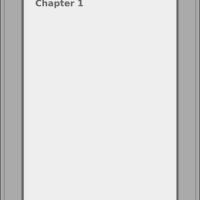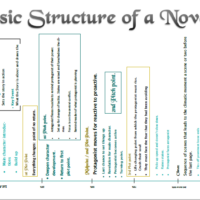by | Jan 20, 2017 | Advice, Blog
Writer’s First Rule.
People pay you for your work. Not the other way around. If someone asks you to pay money, ANY money, in order represent your work you need to do several things:
- Tell them you are no longer interested
- Block their number
- Add their email to your ‘blocked senders’ list
Preditors & Editors was an excellent source list of the good, the bad, and the evil in the world of writing services, but unfortunately, it appears to no longer be active.
The advance.
The sum that the publisher pays you which reflects expected sales. Unless you break the contract that’s yours regardless of how well your book sells
Earn-out
Well done. Your book has earned back your advance and then some. You now get to keep your royalties.
Rights
This is the permission you give to the publisher to publish your work in a specific form, language and place. A legitimate publisher will pay you for these rights as part of your contract, but not on a permanent basis. At the end of a set term they revert to you and if that publisher wants them back, they have to pay again. Do not sign any contract which gives the ‘publisher’ permanent rights.
Royalties
A payment structure which offers a percentage of each sale to you. An average figure would be 6-9% for paperback and 10-12% for a hardback. Ebooks earn a whopping 25%. Often the rate increases as more are sold. It is vital that you get a regular statement for these.
Getting paid
The publisher will give you an advance based on what they think they can sell, then royalties on each copy sold. If you have an agent, you will have to pay a small percentage in return for representation. Your royalties should be paid on at least a six-monthly basis from a large publishing house. Smaller ones may have a shorter schedule.
A £10k advance (lucky you) to sell your hardback novel at £10 each at a rate of 10% would earn the writer £1 per copy. They would have to sell 10,000 copies to earn out that advance. Selling anything over 10k copies is when they start paying you the rate switches around and the publisher gets £1 per copy.
Writer’s Second Rule
The agent only gets paid based on what you sell. You do not pay an agent to represent you. 15% is about average. and they don’t get paid until you do.
There may be odd business tax expenses that you need to take care of but these are infrequent and not the same as fees.
What are agents for?
- Handling contract negotiations
- Submissions of manuscripts to editors. Many of the big publishers do not accept manuscripts without an agent. You may struggle with this without an agent.
- Career advice
- Troubleshooting any problems between publisher or editor and you.
- Handling foreign rights, TV, film etc.
- Some might offer editorial assistance
How involved the get will depend entirely on the agent. Always be sure about what you want, and that they are prepared to provide it. If they want 15% of your hard earned royalty, they must earn it. Whether you opt for an agent is entirely up to you. Do not be tricked into believing you must have one for ‘legal reasons’. Anyone can hire a solicitor to look over a contract, but this is a one-off expense and it won’t mean giving up 15% of your sales.
How do I catch one?
You will need to write a convincing query letter along with a sample of the manuscript. Remember the agent won’t get paid unless it sells, they are going to need to be convinced that their time and effort won’t be wasted on a dead-parrot. If an agent accepts straight away or asks for a fee, walk away.
Writer’s Third Rule
Never pay a publisher. A publisher’s role is to print and sell books. The honest ones pay writers to produce work to print. If they ask you for money, run away. These publishers either have no ability or intention to provide marketing or distribution because you have already given them what they are looking for. Money. You would be better off doing it for free on Amazon, a free WordPress blog to serve as an author website, a free facebook page and a twitter account. Be aware that self-marketing without paid advertising is very time consuming and labour intensive (take it from someone who has been working their socks off trying to get a new start-up off the ground for the best part of a year).
Editors.
- Hired by a publishing house to buy the manuscripts for print and sale, or
- Freelancers who help writers get their work to a level where it is fit to be published.
Publishers’ editors are paid by the publishing house, not you, and will work with you until they are happy that the work is saleable. They are responsible for the quality of the finished product.
I am in box number 2. We’re hired by writers to help get your work to a standard where it can be sold. On average you can expect to pay between £25 and £100 per hour for their time and skill. Many of us prefer to charge by word count as it is never clear how much work will be needed on an individual manuscript. If you are looking to publish traditionally, you do not need to hire an editor to get the book ‘ready’ as the in-house editor will do that, but you will need to be certain that the work is of a professional quality. The publishing house should not be asking you for any money to do this work.
If you are looking to publish traditionally, you do not need to hire an editor to get the book ‘ready’ as the in-house editor will do that, but you will need to be certain that the work is of a professional quality. The publishing house should not be asking you for any money to do this work. If you are looking into self-publishing, then an editor is a must. A bad or cheap edit will stand out a mile.
You are not looking for cheap here either. Look at testimonials, look at their websites etc. If they are dirt cheap and have no testimonials, there will be a good reason. If a freelance editor demands more than a 50% upfront deposit, do not hire them.If they don’t offer free samples or refuse to offer a service agreement, these are also red flags.
Self-publishing is not the same as ‘vanity-press’.
Thankfully the stigma of self-publishing has somewhat decreased in recent years, and it has been made easy what with the rise of Amazon Kindle, iBooks, Kobo, Smashwords and Createspace et al. which are generally free except in terms of time and effort. Traditional publishing has been known to take in excess of a year to get books from the author to the page and into the shops. The cost of self-publishing comes in the fact that you are in charge of your own cover, editing, marketing etc. There are also no advances. On the other hand, royalties are paid monthly, come at around 70%, you retain all the rights. It is very important to read all of the terms and conditions before signing up to any of these services. Exclusivity deals, while on the surface might look fruitful but be aware that in recent weeks Amazon has been known to delete whole accounts on the basis of a suspicion. You will have to look carefully into all your options before deciding which route to take.
Sources
More on editors etc.
by | Dec 6, 2016 | Advice, Blog
Choosing an editor is not easy. The good ones have fees that could choke a horse. However, they are GOOD editors, so the fees they charge are worth it. If you can afford those fees. Unfortunately, many Indie authors just can’t break out that kind of cash.
Enter the rip off artists. They come in many levels of incompetence from authors who just want to make some side cash but don’t really know how to edit, to outright thieves who will take your money and give you nothing in return. Unfortunately, the latter kind thrives on the internet. We have all heard the stories of writers victimised by people calling themselves editors but didn’t even fix spelling mistakes, much less formatting, style, or continuity issues. As an editor myself, I am always learning and improving my craft this kind of thing makes me so angry – not least because it taints all freelance editors with the same reputation – but rest easy. This post is not an estate agent type post telling you to only trust me and ignore all those other editors. Finding the right editor for you is important.
So here are some guidelines for how to find the honest ones, pick an one, and dealing with them. Feel free to pipe up in the comments with any other suggestions I might have missed.
- Go with someone you know or who is recommended. If you can’t do that, the following steps can help.
- Do your research: collect reviews and referrals. How do they respond to complaints?
- Ask for a sample edit from the first chapter of your book, before any money changes hands. A new editor should be willing to do this to get your business, and most honest editors offer this as standard.
- Have someone you already trust and knows what they are doing, read the sample and let you know if they are good.
- Try to find one who will take a deposit up front and charges balance when the job is complete. If they demand the whole balance up front, steer clear. That said, I do expect full payment up front for small jobs (less than 10 pages =2500 words), but 50% of that is refundable if the client is not happy with my work
- Generally, I would advise you to avoid those who demand the full amount upfront. If their work is genuinely substandard –this is not the same as being unhappy about harsh feedback- do not pay the balance and demand your deposit back. New writers should be aware that it often takes several rounds of editing before your work is publishable.
- No editor can wave a magic wand and suddenly turn an unstructured first draft into a literary marvel in one go, and no reputable editor will claim to be able to. It depends entirely on the submitted work.
- Not all editors offer the same services or deal with the same type of text. You need to find out which genre they will work with and what levels they offer. I offer all four levels and am pretty much happy to edit whatever crosses my desk. Others may only deal with certain genres, or offer higher level editing. An honest editor will use your work to assess the level you are writing at and determine what the work needs. They will advise you what needs to be done, and if they are not able to offer the full scope of work required, you may find they will point you in the direction of someone who can.
- If you have ever dealt with an editor who has given you less than the quality of work promised for your money, you still have rights. A freelancer is subject to the same consumer laws as everyone else.
- You want to engage with someone who will cut deep and pick up the typos and mistakes. Remember, a good editor is on your side. A reader is not. The editor wants you to be able to publish your best work possible. You are not looking for ‘nice’. If they go too easy on you or appear to be in a rush to get to print, it can still count as bad editing. The reader will not be nice or give you the benefit of the doubt as it’s your first book. They will, at best, put your book down and never read your work again. At worst, they will leave a scathing review from wherever they bought it, and they will still never read your work again.
- A good editor will not point you at a publisher or insist that their services rely on you going with a particular press. If they do, they are probably taking a back-hander. I’m afraid you will have to do your homework for that too.

by | Sep 29, 2016 | Blog
Introduction
I should distinguish first, the differences between the roles of the editor and copy editor. It might seem at first, particularly to new writers, that the two roles are one and the same, but they vary definitively. There is no strict definition of who does what, which can lead to confusion over what to expect so it is vital for you to be sure exactly who offers what, and at what level so you can be sure that your book gets the right process. These service levels are dealt with in more details later in the post. Briefly, an editor is the second pair of eyes who will be able to look at an author’s manuscript objectively, and dispassionately, and thereby identify where the work has potential, where it falls down, and advise where changes are needed in order to make the work as good as it can possibly be (Oliver, 2003, p. 127) this will take several drafts.
While the use of the terms ‘editor’ and ‘publisher’ also appears to be inter changeable, particularly in writer’s guides written in the US, they also vary. In the US, the publisher is the printer. They prepare the material for printing, then issue the books, newspapers and magazines for sale to the readers. In the UK, the publisher is a person or company who is in the business of publishing printed material.
Self-editing is another different process, which will be covered in a different post. This is the furthest you can take your work without professional assistance. It is good practice to go through your own self editing process and take pains to get your work as close to being finished as possible before submitting any of your work to an editor. It will save you a great deal of time, money, and disappointment (Maitland, 2005, pp. 174-195). Finally, no type of editing service includes changing huge chunks of your work. Ghost writing and co-authorship are entirely different agreements, which have no bearing on the editorial process. These arrangements, for good reason, should be entered into separately.
What they will do.
‘An author’s publisher is, in effect, his/her very first, critical, perhaps over-critical, reader. If something strikes your publisher (who is on your side) as not very good, then it may have the same effect on other readers – the buying public, who are not on your side until your book persuades them that they should be.’ – Reay Tannahill (Oliver, 2003, p. 128)
Before work begins
The website Preditors and Editors, contains a list of editing services, which they rate according to their quality (Preditors & Editors, Inc., n.d.). A ‘not recommended’ rating is issued to services which fulfil one or more of several criteria. A good editor will only invoice you for work you have agreed for them to carry out. Here lies the importance of a fair service agreement, signed by both parties which should lay down the precise remit of the editor. This contract is an agreement between author an editor to perform a specific task or process. A good editor will acknowledge that it will take at least four rounds of editing before a work can be in anyway considered finished and ready to publish. A good editor will not make rash promises, in order to pull you in. A good editor will stick to their contract and deadlines: they want repeat business and to do this they will offer a good service – not low prices – and produce a good result,
Free sample editing
Sample edits allow an editor to demonstrate their ability to edit your work and provide an example to you of the standard you can expect from them. One page is reasonable to ask, and many offer this as standard practice, but you should not expect them to sample more than five pages. Remember that whilst they are trying to sell their services, their time and skills are as valuable as your own. At this is the stage an editor can also gain a rough impression of what level of service your work needs and how long it will take (Koch Macleod & Douglas, 2014).
Editing plan
This will detail the exact processes your work will undergo. It normally consists of four or five stages over many drafts. These exact processes and the wording of the plan will vary between services but this plan outlines the level of service which will be agreed to in your service contract. This should be produced prior to signing any agreement. A good editor will set realistic and fair deadlines in their contracts and they will stick to them. Be aware that sometimes work may take longer than previously estimated. A ten percent margin of error in this respect is not unreasonable and a fair service agreement will allow for this.
Service Agreement
No full manuscript should be submitted before a service agreement, which reflects what you have already agreed to has been signed by both you and the editor. This contract is an agreement formalises your agreement. If you are not entirely happy with the terms of an agreement, a good editor will negotiate before producing a contract. If they will not negotiate, do not sign anything. It should detail the agreed prices, the service levels and terminology, and the cancellation process.
The actual editing
Most importantly, it is not the job of an editor to research for, or to rewrite your work for you. An editor will suggest changes that they believe will improve the manuscript (Tuttle, 2005, p. 109). These may be minor corrections such as word misuse, or alerting you to the repetition of phrasing. They may also be major, such as removal of sections or even whole sub-plot lines, or including additional content. These changes are not compulsory. It is your work and you do not have to change anything unless you are entirely convinced (Tuttle, 2005, p. 109). That said, editorial advice should be given proper consideration, and not simply rejected if you find their reactions overly harsh. Editors can bring an unbiased eye to your work, as well as a totally candid assessment, whereas a friend or family member might be reluctant to point out any failings, lest it hurt your feelings.
A good edit consists of four distinct stages (Koch Macleod & Douglas, 2014).
-
Developmental, (structural or substantive).
Here an editor will look at how the story comes together and makes a note of trouble spots: where the plot is lost or inconsistent; where there is an excess of description; where the characters are indistinct. From this point, they will look at how sections might be reordered so they fit together better, and represent the expectations of the reader. This can be an expensive service if the whole of a manuscript needs restructuring so it is a good idea to address this issue before you start writing with a detailed outline. This can also be sent to an editor, together with your manuscript, but bear in mind that this may incur an extra cost (Koch Macleod & Douglas, 2014).
2. Paragraph Level (stylistic or line editing).
This stage resolves issues over the clarity and flow of your sentences. It could involve moving the sentences around to clear up the meaning, but it always aims to preserve your voice in your work (Koch Macleod & Douglas, 2014). If your sentences feel formulaic, with excess adjectives, the vocabulary is unsuitable for your audience (strong language etc.), you have used specialised jargon without taking the time to define terms, or your transition between paragraphs is disjointed, it might be a good idea to request a stylistic edit (Koch Macleod & Douglas, 2014).
3. Sentence Level (copy-editing).
After the editor has suggested the required changes to the content, with regard to accuracy and structure, the copy- editor (which may be the same person) will check the fine details such as spelling punctuation and grammar (Maitland, 2005, p. 174). This assess the grammatical structure of your sentences, ensuring the correct use of words and the consistency of argument or story line. The writer may have deviated from the expected course, due in part to the sheer number of small details they are trying to incorporate into a single narrative. Inconsistency in spelling can also be caught and picked up in sentence level editing so the author can be alerted and they can correct it in the next draft (Koch Macleod & Douglas, 2014). A good copy-editor will make sure a writer sees these corrections. This is easy to do in applications such as Word as it has a designated function to track changes. While you are under no obligation to accept them (Oliver, 2003, p. 128), it is recommended that your follow their advice.
4. Word Level (Proofreading)
This is the final stage, not the first. This is applied only after the structural issues have been addressed and resolved. It’s the final spit and polish. Typing, spelling and formatting problems are highlighted and an editor will examine how your text presents itself in both hard, and electronic formats. This is the final opportunity to catch errors before your work is laid before the public, for a reader to immediately point them out. (Koch Macleod & Douglas, 2014).
What they won’t do.
‘An average manuscript from a new author does need quite a large amount of editing, often two or three sets of revisions need to be carried out’ – Luigi Bonomi (Oliver, 2003, p. 127)
A good editor understands that editing can only do so much. As demonstrated above, it is their job to guide the author through a final process in regard to structure and storyline. In short:
- They will not rewrite your work. Nor will they promise to make your manuscript ready to publish within the first round of editing.
- They will not make any promises to get your work on best-seller lists.
- Beware of those who do make bold promises. You absolutely do not want to do business with those people.
- They will not make any attempts hard-sell any long term deals, or push you toward particular printers or publishers.
- If you are cold-called by an editor, do not use them. All contact should be initiated by you.
- A good editor will not use your work without your consent. They have no propriety rights to your work (unless they have bought the work from you, as in the case of traditional publishing). Submitting work to them for editing, does not imply that they have any permission to use it. Even with permission, they have to correctly attribute it to you. If an editor uses work by the writer (in whole or part) without permission, without attribution, this constitutes an abuse of fair use.
Bibliography
- Card, O. S., 1990. How to Write Science Fiction and Fantasy. Cincinnati: Writer’s Digest Books.
- Koch Macleod, C. & Douglas, C., 2014. 4 Levels of Editing Explained: Which Service Does Your Book Need?. [Online]
Available at: http://www.thebookdesigner.com/2014/04/4-levels-of-editing-explained-which-service-does-your-book-need/
[Accessed 29 September 2016].
- Maitland, S., 2005. The Writer’s Way. London: Capella.
- Oliver, M., 2003. Write and sell your novel. 3 ed. Oxford: Howtobooks.
- Preditors & Editors, Inc., n.d. Editing, Copywriting, Ghostwriting, Indexing, & Software. [Online]
Available at: http://pred-ed.com/peesla.ht
[Accessed 29 September 2016].
- Tuttle, L., 2005. Writing Fantasy and Science Fiction. 2 ed. London: A & C Black Publishers Limited.














